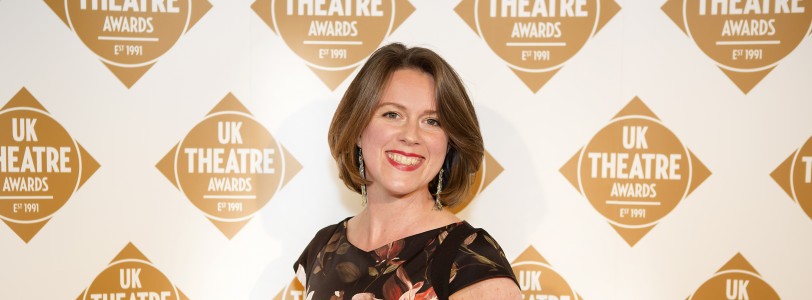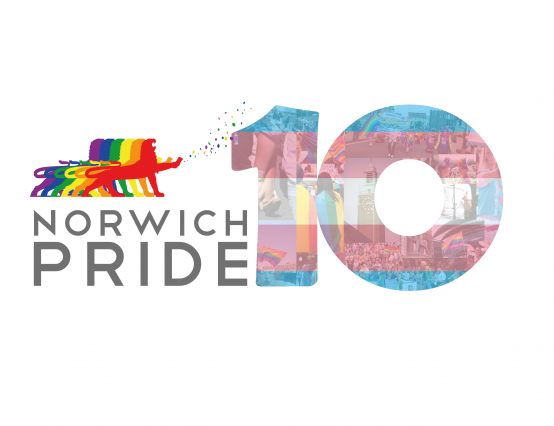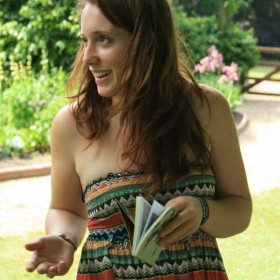Could you first introduce yourself to the reader?
Hello, my name is Cassie and I’m the head of the major professional association for theatre and the performing arts in the UK, called UK Theatre. I am 44 years old and have a 15 year old daughter and 10 year old dog (a Lakeland Terrier).
What does your job involve? Give us the typical outline of a day?
Today I’m on my way to a performing arts conference in Belfast, so I’ve spent most of the day catching up on emails (and writing this!) from the airport while waiting for a delayed flight. UK Theatre members are based across the UK so I’m often travelling to meet them. On any one day I might talk to people about speaking at one of our conferences, meet MPs and civil servants about the issues theatre is facing, or look into research and reports that help us tell the story of why theatre and the performing arts are so important for society.
What’s great about your job?
I have the privilege of working to promote and look after an industry I love. Theatre holds a mirror up to society and provides a voice for us all to speak with, as well as being brilliant, exhilarating entertainment. It is great to be a part of keeping it resilient, and relevant, for audiences.
What are the bits you don’t like or find challenging?
It can be challenging to work in an industry that must continue to make the case for funding and our long-term future. The effects of austerity and spending cuts are everywhere, particularly at local authority level, so that can be a tough issue to support members through. It’s also worrying that arts education is being sidelined in schools. If children aren’t introduced to theatre at school we’ll stay a very white, middle class industry – that would be a huge creative and economic loss to us all. We need arts and theatre that represents everyone, is made by everyone, for everyone.
What are the highlights of your career to date?
When I was in publishing I worked with such a variety of different books and authors. That was a highlight in itself, and it was also good to work with some big names such as Frank Skinner, James Ellroy, and even the Spice Girls. At the Arts Council my proudest moment was when we launched the Cultural Education Challenge, which encouraged organisations work together to provide a strong arts education for all young people. In the last few weeks at UK Theatre I’ve had a couple of major highlights; we launched a helpline for theatre professionals, and held a new conference that attracted over 350 senior delegates from across the sector to engage with discussions about the future of the industry.
How did you get into an arts job? Have you also worked outside the arts?
I started working in the creative industries about 20 years ago, as a publicist for companies like Random House and Fourth Estate. Before that I’d worked in restaurants and bars to save enough money to do the unpaid work experience that got my foot in the door. I’m very keen to that no-one has to work for free to get their break these days. After 10 years in publishing I went to Arts Council England, where I advocated for the importance of public funding for the arts and culture.
Can you describe your biggest challenge so far in your career? How did you overcome it?
It was hard to be at the Arts Council in 2007, when it was criticised for its funding decisions. Then, later, to be there through two major re-structures that were all about making cost-savings. Both experiences taught me a lot, about the importance of good relationships and open communication, and about how an organisation’s culture, and being able to feel part of the culture, is essential.
Have you noticed any changes in the industry? If so, what?
We’ve got a long way to go, but it seems that, in increments, the talk about making the creative industries more inclusive and open to everyone is turning into action. These days it’s possible to get excited and inspired by the young talent and new voices coming through, instead of looking around and wondering where they are coming from. We have to keep on this – the arts can be complacent that change will happen without clear action - just because it considers itself to be so liberal.
You’ve been granted the ability to send a message to 16-year-old you. What do you say?
It’ll be ok, really. It is possible to make a career from loving reading and the arts. Don’t worry about how, just know there’s a whole world of jobs out there that make it all happen. Also, stop wearing so much black. It will become a hard habit to break!
Do you have any advice for young people interested in doing your kind of job?
I wouldn’t have had any idea I’d be doing my kind of job when I was a young person. The pathway to whatever you want to do can be winding and full of detours. It’s your pathway; think about what you’re learning along the way - and enjoy the journey!
Want more tips on working in the arts? Head on over to Creative Choices, a website filled to the brim with advice on how to get into the arts.









Great interview! It's really interesting to hear about her career, and encouraging to read.